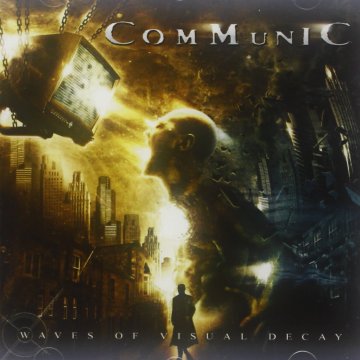Lost in Time: Iceberg – Coses Nostres

Style: flamenco-influenced fusion (instrumental)
Recommended for fans of: Return to Forever, Mahavishnu Orchestra, Triana
Review by: Tim
Country: Spain
Release date: 1976
In November 1975 fascist dictator generalísimo Francisco Franco died after he brutally reigned Spain over three-and-a-half decades. During those years not only divergent political ideas were suppressed, but also several cultures as a whole were banned, such as the Catalonian, Basque and Galician ones. It was forbidden to speak local languages and newborns were not allowed to be named in a local fashion, to name only a few examples. Unsurprisingly, once freedom returned in Spain a wave of cultural rebirth arose. The field of progressive rock was no exception, and one of its branches was Andalusian rock, or flamenco rock. In the second half of the 1970s bands like Guadalquivir, Imán Califato Indepediente, Triana, Camarón, Mezquita, and of course the Catalan Iceberg all integrated flamenco influences into a progressive approach. Due to aforementioned political reasons this progressive boom occurred later than in many other western countries, but typifying it as merely an outdated version of the Anglo-Saxon sound doesn’t do it justice. It is only one of many unique and interesting branches of 1970s progressive rock outside the United Kingdom and the United States. From this branch, Iceberg‘s Coses Nostres and Sentiments are absolute highlights, albeit far from the only Spanish band to have made fantastic progressive music in that era.
On their second album Coses Nostres Iceberg went for a far more fusion-oriented approach than on their previous (more symphonic) record Tutankhamon. On the short opening track “Preludi I Record” the band presents happy guitar-shredding and the first hint of what makes this drummer different than any other: the amount of times he changes accents is unrivalled. The next track “Nova (Musica de la Llum)” – Catalan for “New (Music of the Light)” – is a fusion tour de force quasi-reminiscent of Return to Forever‘s hyperactive trademark sound. After an intro that isn’t longer than necessary, the first short burst of energy displays the virtuosity of all band members simultaneously. The follow-up is a chain reaction of solos, with electric guitar and synthesizer taking swift turns. In the meantime the drums and the bass don’t hesitate to vary as well. Midway the tour de force halts only to slowly crescendo back into the theme introduced earlier in the track. Finally, the song ends with studio experimentation expanding on techniques pioneered by legendary krautrock band Can five years earlier.
With the third A-side composition “L’acustica (referencia d’un canvi interior)” {Acoustics (reference to an inner change)} the album takes a more intimate turn. Bearing the song title in mind it’s not very surprising that the acoustic flamenco guitar and piano play a role here, but the goosebumps-invoking synthesizer really steals the show here. It is effective exactly because it is only used scarcely in the song and thus gives contrast with and more meaning to the rest. Kill your darlings, as they say. After that delightful experience the A-side is closed with another fusion banger. “La d’en Kitflus” (of Kitflus) is a composition by the man on the keys, Josep ‘Kitflus’ Mas Portet. The electric piano and synthesizers shine (which can sometimes be heard at the same time), but not at the cost of the other band members. Plenty of complex melodies are played on guitar and synthesizer, sometimes simultaneously, while at other moments like a call and response interaction. It has such great energy!
Now you might wonder: why this intro about Andalusian rock? After all, so far flamenco has been barely mentioned in this review. On the B-side this changes: “La flamenco electrica” (Electric flamenco) is, as its name suggests, rooted in a flamenco chord progression, with wild synth and electric guitar work on top of it. Praise is also deserved by the impeccable bass and drum sections, which make the song one of the wildest flamenco compositions heard by mankind. After that wild ride “A Valencia” (To Valencia) shifts the mood to American fusion – in fact it is the most American-sounding song of the album. It even has some jazz-funk vibes. It’s a calmer piece where even drummer Jordi Colomer holds back a bit, to the benefit of the album’s balance. Finally, the last – but absolutely not the least – track of Coses Nostres, “11/8 (Manifest de la follia)” {11/8 (Manifest of madness)}, is an absolute beast! Somewhat surprisingly the 11/8 time signature used here sounds very natural; also, the flamenco influences are back. Preceded by a drum excursion that doesn’t back down anywhere in the song, the listener gets treated with very tasty guitar shredding and synthesizer mania on top of one of the most addictive basslines of the album. It’s such a joy to listen to!
In conclusion, this album is one of the absolute highlights of Andalusian rock, in which flamenco and fusion are combined like they belong together. It doesn’t get old even a bit after dozens of listens. Its unbridled energy combined with top-notch musicianship and great compositions make Coses Nostres a timeless classic. I can’t recommend this one enough!
Recommended tracks: all of them (even the prelude)
You may also like: Gòtic, Guadalquivir, Imán Califato Indepediente, Mezquita, Camarón
Related links: Spotify | Rate Your Music
Label: Bocaccio Records, sublabel of Compañía Fonográfica Española
Iceberg is:
– Joaquín ‘Max’ Sunyer (electric and acoustic guitar)
– Josep ‘Kitflus’ Mas Portet (piano, electric piano, synthesizer)
– Primitivo Sancho (bass)
– Jordi Colomer (drums)



0 Comments